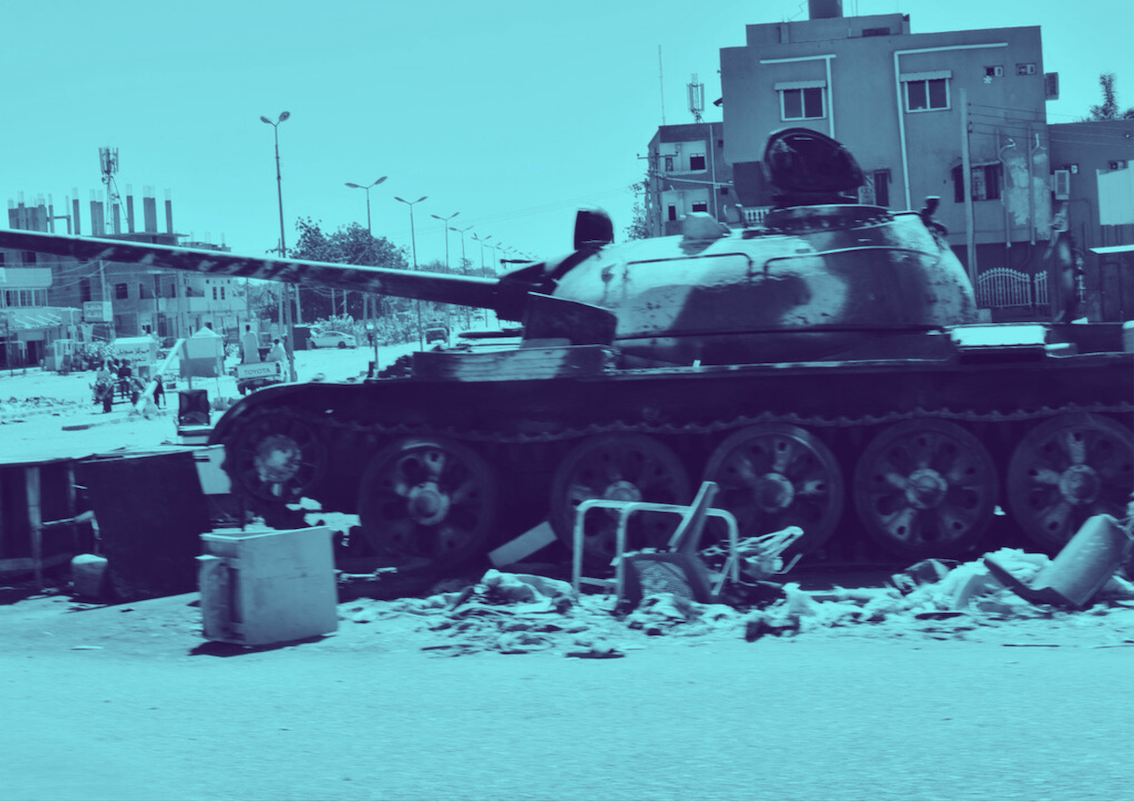Sudan Conflict Monitor #20

26 May 2025
The Sudan Conflict Monitor is a rapid response to the war in Sudan written through a peacebuilding, human rights, and justice lens, reflecting on the most important stories in the country. Please share it widely.
Powered by Ayin, Human Rights Hub, and the Sudan Transparency and Policy Tracker
In this issue:
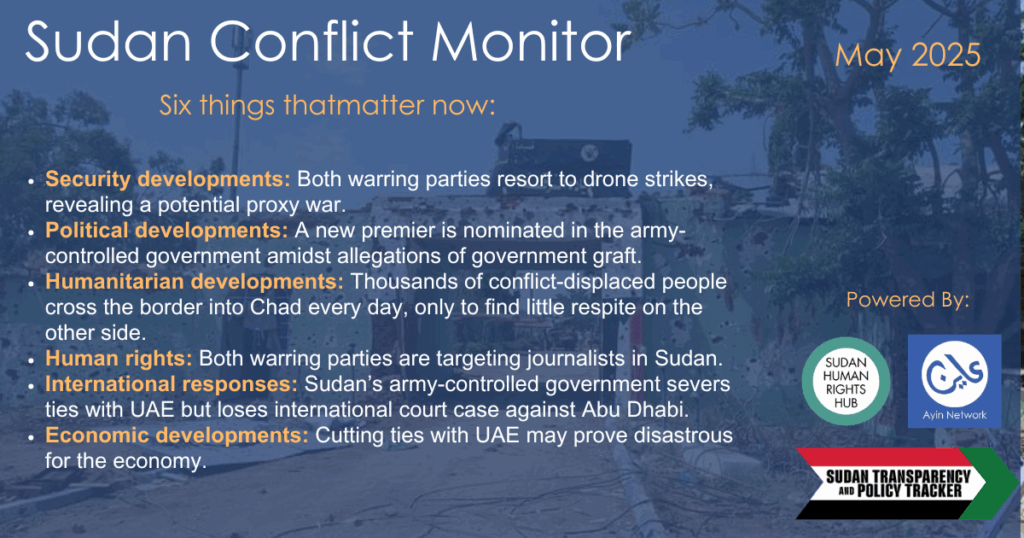
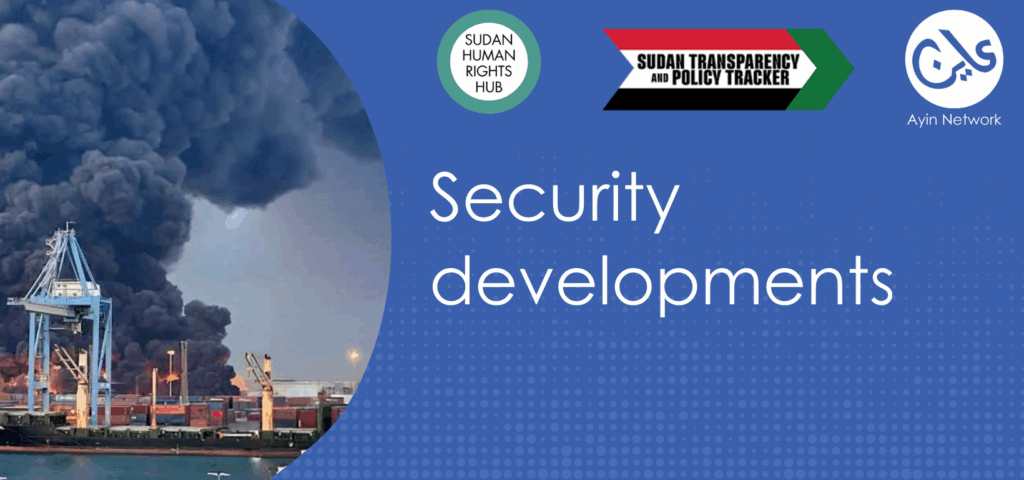
1. Security Developments
RSF increases drone attacks in SAF territory
Over six days in early May, a series of drone attacks targeted the airport, fuel depots, and other key installations in Port Sudan. One targeted the Coral Marina Hotel, which is frequented by diplomats and aid personnel (as well as reportedly previously serving as the residence of the Sudan Armed Forces (SAF) second in command, Kabbashi). These attacks have seriously undermined the sense of security in SAF-controlled areas, leaving the impression that nowhere can really be considered safe anymore. There have also been practical consequences. Prices on key commodities, including water, have increased in wartime capital. They have also raised serious concerns about the ability of the city to continue to function as an aid hub. If it cannot, the dire humanitarian situation in Sudan is likely to become ever more catastrophic. Aid workers estimated that at least 50% of food aid distributed in the country is distributed through the city.
The Port Sudan attacks build on a pattern of RSF drone attacks, previously targeting El Fasher, Kassala, and Al Maha. On May 20, there was an attack on Omdurman that caused big explosions near the Faculty of Education of the University of Khartoum. It was speculated that the attack targeted a weapons depot in the building belonging to Al-Bara Ibn Malik jihadist brigade, which would imply that it was likely carried out by RSF, but this is not yet confirmed.
On the SAF side, drone strikes have been used to attack Nyala, a strategic SAF stronghold. The attacks have targeted the airport and the Aldaman Hotel. SAF says that these attacks are intended to interrupt weapons shipments. However, some argue that they are rather ethnically targeted and intended to terrify civilians.
RSF loses its last stronghold in Khartoum State; war shifts to Darfur and Kordofan
The SAF captured Salha in the second half of May, removing the last vestiges of the RSF from Khartoum State. This development marked a definitive shift of the war away from the capital and to Darfur and Kordofan.
Attacks on El Fasher intensified in early April, with severe attacks on IDP camps that killed civilians, humanitarian workers, and infrastructure. In the last month attacks have continued, although at a lower pace. This includes shelling on May 11, which reportedly killed seven people and injured at least 15 others. However, overall attacks have reportedly declined and the RSF lost its base at Al Atrun in mid-May. The case was along a critical supply route and may impact operations in El Fashir and elsewhere in North Darfur. It may also be an indication that more resources are being diverted to the Kordofan states.
The SAF has reportedly gained control of the entirety of Khartoum State and White Nile State, as stated by a spokesperson for the SAF. Today, the battleground has been moved to the historically conflict-torn regions of Kordofan and Darfur. The scenario appears to be resulting in fragmentation, potentially creating several controlled territories under the warring factions.
Meanwhile, the fighting has heated up in the Kordofans. The battle involving SAF, RSF, and allied militias in Kordofan occurred primarily around Al Nuhud on May 1 and, on May 3, Al Khuwayyi in West Kordofan State. The actions caused significant displacement, including 5,451 households from Al Nuhud and 1,678 from Al Khuwayyi. These areas have significant strategic importance. Al Nuhud is situated on an important highway between western Sudan (Darfur) and central Sudan. Its seizure enabled the RSF to consolidate control over crucial supply routes, potentially jeopardising El-Obeid, a strategic SAF bastion, in North Kordofan and limiting the SAF’s presence in West Kordofan.
It may also have an important impact on tribal dynamics. The Hamar tribe, particularly their leader, supports SAF. This has led to significant rhetoric from RSF leaders who are speaking openly about the Hamar tribe’s involvement. The sentiment has been echoed by a number of Facebook accounts, which are calling for attacks on the Hamar as retribution. The move could draw other tribes into the fighting.
Regarding the tribe’s inveiglement in the conflict, In Omdurman, various tribes and their leaders, including the Kawahla, have participated alongside the Sudanese Armed Forces (SAF). Conversely, the Messiria and other tribes in Kordofan have been actively supporting the RSF. Following the RSF’s defeat in Omdurman and greater Khartoum, they have been vocally accusing certain members of other tribes of insufficient loyalty to the RSF, attributing this disloyalty as a primary factor in the losses in Wad Medani, Khartoum, Omdurman, and other battlegrounds. This pertains not just to tribes directly involved in the fight but also to those that could potentially redirect the conflict towards the same factions of the SAF and RSF.
The RSF gains were apparently short-lived; SAF recaptured Al Khuwayyi on May 11, and the RSF suffered significant losses in the Kordofans and were forced to retreat back on May 13 towards Al Nuhud. The SAF presences at Heglig and Babanusa in West Kordofan are reportedly still under siege.
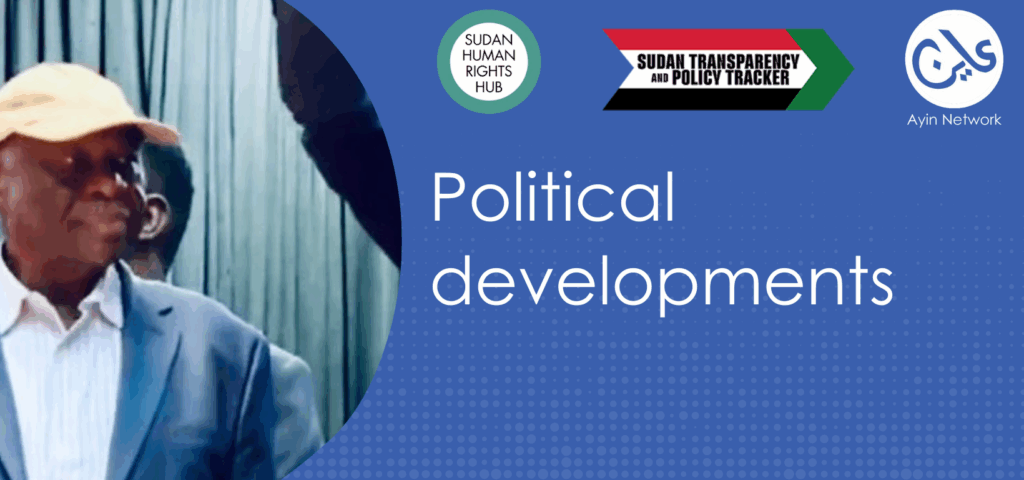
2. Political developments
Spoils system on full display in Port Sudan
Recent public complaints by senior officials of Sudan’s de facto government in Port Sudan about widespread corruption within the very institutions they oversee have left many citizens baffled: if they see the problem so clearly, why are they unable—or unwilling—to stop it?
General Abdel Fattah al-Burhan brought the issue to the forefront during a national civil service reform conference on April 29, lamenting the behaviour of some ministers. “Once appointed, they bring in their nephews, maternal uncles, and even grandmothers to run the ministry with them,” he said. “This is the reality we see before us—no one can deny it.”
At the conference’s closing session on May 1, First Vice President Malik Agar added to the criticism, highlighting the persistence of “ghost workers” on government payrolls. With biting sarcasm, he described a civil servant who, during the two years since the government relocated to Port Sudan, had acquired two apartments in Cairo, one in Istanbul, and a local plot of land—all while ostensibly employed in public service. “We and the ministers see the problem and talk about corruption,” Agar said. “But this guy sees himself as smart—and a loyal servant to Mr President!” His remarks appeared to allude to a specific individual within the presidential office.
A few days later, Finance Minister Jibril Ibrahim appeared on Al Jazeera Mubasher, where he was asked whether he was the official Burhan had referenced. Defensively, he claimed to have appointed only his cabinet director and personal secretary, insisting that all other appointments followed civil service procedures. However, multiple examples suggest otherwise, casting doubt on his claims.
While these expressions of anti-corruption sentiment may appear commendable on the surface, they ultimately expose a more profound problem: the entrenched spoils system that treats government positions as rewards for political and military loyalty. Despite their public statements, these officials continue to preside over a system where patronage, not merit, determines who holds power—and who benefits from it.
New civilian prime minister named
The de facto government in Port Sudan has named a new civilian prime minister, Kamil Al Tayeb Idress. Idress formerly worked with the World Intellectual Property Association for many years but was eventually forced to resign after allegations of falsifying his records and work experience surfaced. There have also been allegations of mishandling funds. The head of the AU Commission, Mahmoud Ali Youssef, commended the step as a step towards inclusive governance. H.E. Dr Workneh Gebeyehu, the Executive Secretary of the Inter-Governmental Authority for Development (IGAD), was more cautious, noting the appointment and saying that he “hopes that this appointment will mark a meaningful step toward reviving an inclusive political process.”
IIn the UK, members of parliament expressed concern that such actions could be used as a pretext for the African Union to legitimise Burhan’s military regime.
Islamists and pro-democracy political actors—largely represented by the broad alliance Somoud (Arabic for “Perseverance”)—found rare common ground in their shared opposition to Burhan’s appointee because of the cloud of corruption that ended his UN career. Since then, he has spent his post-UN career lobbying both former President Omar al-Bashir and the current military ruler, Burhan, for the position. Indeed, Communist Party representative Salih Mahmood Osman argues that the appointment, being made as it was by leaders who came to power in a coup, violates the AU Charter. Professor Siddig Tawir of the Socialist Arab Ba’ath Party called the appointment “an unconstitutional move” undertaken by those “keen on sustaining dictatorship to exploit Sudan’s resources”.
The AU should note that Idris’s appointment is a result of recent constitutional amendments that grant Burhan and the military extensive powers over all state institutions. These powers include the authority to appoint the Chief Justice, Supreme Court justices, the Prime Minister and his cabinet, as well as the Auditor General. The AU cannot disguise these powers as a return to civilian rule unless it chooses to violate its own firm principles that reject military rule.
Even when presented as a technocratic façade, the process of forming a new cabinet is fraught with complications. TThe SAF has already rewarded its political and military allies, including the Darfur armed groups that are now aligned with the SAF against the RSF, by granting them ministerial posts that provide control over state revenue collection and public funds such as social security, retirement, and health insurance. TThese armed groups view their ministerial positions as entitlements and are likely to resist any reshuffle that threatens their influence.
Meanwhile, the Islamists—widely believed to have ignited the conflict and whose jihadist brigades now spearhead SAF offensives—view Idris’s appointment with suspicion, fearing it may be a manoeuvre to sideline their return to power. Warlord Keikal, whose defection from the RSF helped the SAF retake Jazeera state, has launched a campaign against the current Minister of Finance, Jibril Ibrahim, accusing him of corruption and nepotism. Keikal has openly threatened to oust the minister, signalling that he expects political rewards for the role of the Sudanese Shield Forces in aiding the SAF’s recent battlefield gains.
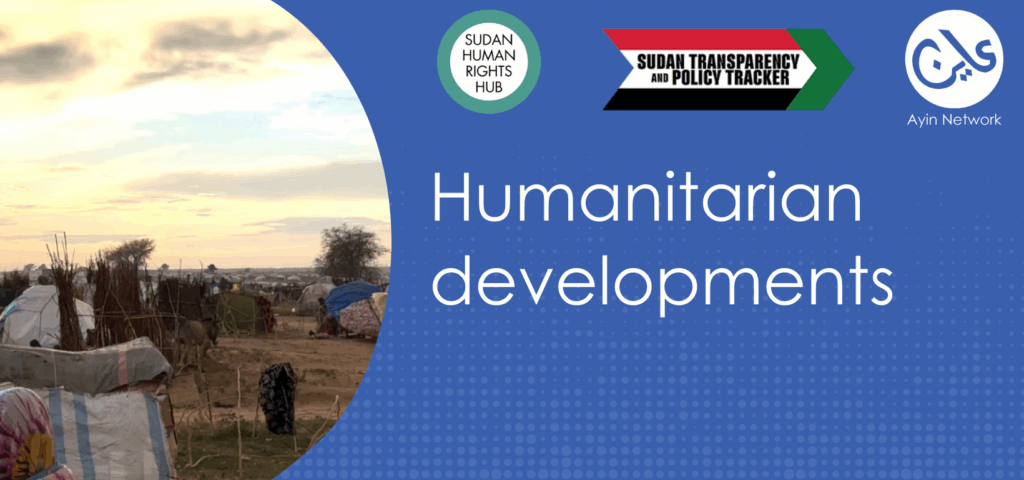
3. Humanitarian developments
Refugees flee to little assistance in Chad
The ongoing violence in Darfur continues to force civilians to flee to Chad. However, they are facing a desolate landscape. It is estimated that as many as 3,000 people are crossing the border per day and that 47,110 arrived between mid-April and mid-May. Many arrive at Tine and Barak from areas such as Zamzam refugee camp in Chad. Many of those that are arriving are hungry and dehydrated. Temperatures often exceed 100 degrees Fahrenheit, leaving people incredibly vulnerable.
In part due to US aid cuts, there is only a skeleton of international humanitarian response to receive them. UNHCR’s operation in Chad is only 9% funded, which means that they are often unable to provide food, water or shade to these desperate people. They lack vehicles to transport refugees to camps away from the border. Only about 20,000 of the 50,000 refugees who arrived at the transit camp have moved to the more permanent camps along the border.
Despite the dire circumstances, Sudanese mutual aid groups have shown resilience by actively providing food and water at the border, regardless of limited resources. The Emergency Response Rooms (ERRs) are able to feed up to 17,000 people per day. While reflecting on these brave actions, former US Envoy Tom Periello stated at a Refugees International event, “If you want to show that you are the champion of a new and better way to do it, then you can do that by supporting mutual aid.” On 20 May, the ERRs received the European Union Human Rights Award for 2025. While they did not win, the ERRs were nominated for the Nobel Peace Prize in 2024 and may be nominated again this year.
ERR operations are not only facing fiscal challenges but also direct targeting and replacement in SAF-controlled areas. Islamist-backed entities, originating in 2019 but reactivated under military rule and known as “Dignity Committees”, are replacing the ERRs in areas recaptured by the army, especially in the southern areas of the capital, Khartoum. Civil society members claim these new committees do not perform as effectively as the ERRs since they distribute aid with a bias and act as informants for the army-controlled government. Activists argue the “Dignity Committees” are part of a broader Islamist strategy to reassert dominance and erase the revolution’s legacy.
Khartoum’s military-backed state government is also requiring the ERRs to register and operate under the Humanitarian Aid Commission. These commissions, originating during the Bashir era and formerly under the control of military intelligence, were infamous for preventing international aid agencies access to the country during Sudan’s first Darfur conflict in 2003. Activists fear this recent move will politicise the aid delivery process and may lead to shuttering the ERR community kitchens in the capital, which currently serve over 1 million people per day.
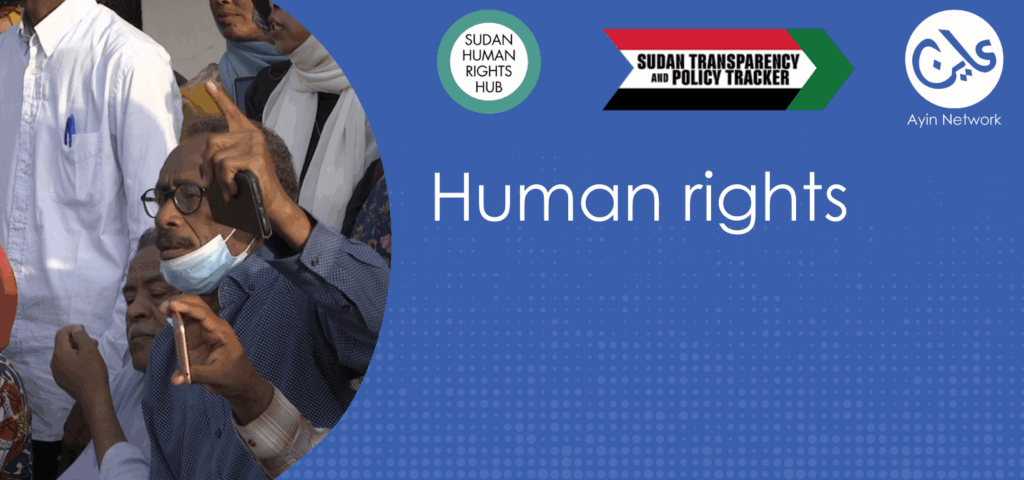 4. Human rights
4. Human rights
Journalists targeted in Sudan’s war
On May 18, Sudanese photojournalist Al-Shykh Al-Samany Saadaldyn was killed in an RSF drone strike while covering an event organised by a pro-government militia in eastern Sudan. The killing was only the latest in a string of attacks on journalists. During the two years of Sudan’s war, journalists have suffered significant losses. According to Ayin:
- 556 have been subject to human rights violations
- 500 have been forced to flee the country
- 239 have been arrested and detained.
- 1,000 have lost their jobs, and
- 31 have been killed (the Committee to Protect Journalists lists 12)
About 90% of media outlets are estimated to have been forced to close. Hundreds of journalists have lost their jobs and income as a result. This process has caused suffering for journalists and increased polarisation, as the absence of trusted and independent journalistic sources has opened up space for biased ones.
More evidence of arbitrary detention
The SAF has declared the complete recapture of the Greater Khartoum area, including Khartoum, Omdurman, and Bahri, having expelled RSF paramilitary members from western and southern Omdurman recently. The changing front line has not resulted in enhanced safety for civilians, who continue to be trapped between active combat activities and widespread abuses of rights by both parties.
Last month, we covered a report by the UN Office of the High Commissioner for Human Rights on unlawful detention practices by both the SAF and RSF. This month, our partners at Sudan Human Rights Hub published a report, Sudan’s Shadow Prisons: Captivity, Torture, and Enforced Disappearance, on the same issue. Their report shows that both the SAF and the RSF detained people without charge or access to legal counsel. The report notes that both parties operate detention centres, such as the Hatab detention centre north of Khartoum, the Al Nakeel police station, and Soba Prison. Conditions in detention are extremely harsh, as detainees receive only one meal per day or even fewer meals and suffer from diseases. Some detainees reported having witnessed mass executions. It is estimated that more than 500 people have died in custody since the start of the war. The report also argued that the RSF are using detention as part of a broader strategy of ethnic cleansing, which is most harshly directed against Darfur’s non-Arab communities.
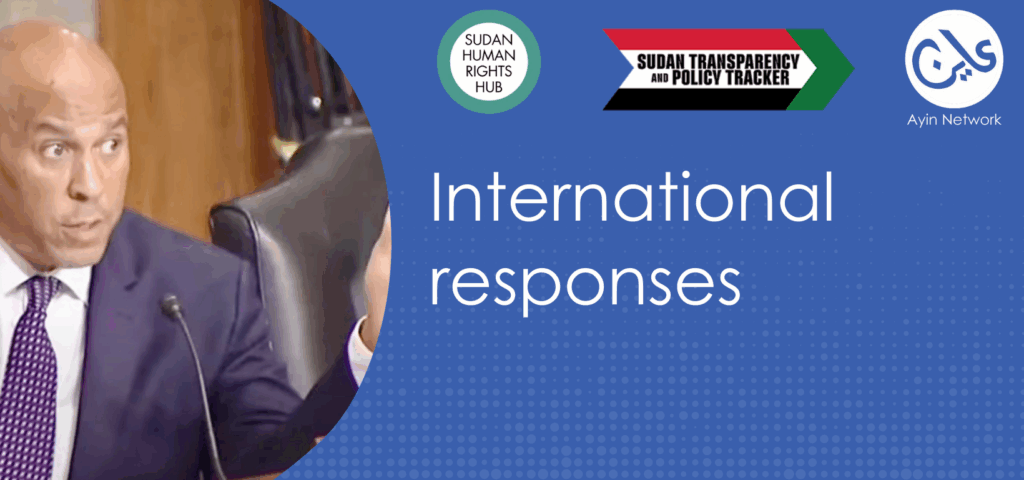 5. International responses
5. International responses
The International Court of Justice throws out genocide case against the UAE
The International Court of Justice (ICJ) threw out a genocide case against the United Arab Emirates, finding it had no jurisdiction to issue provisional measures or hear the merits of the case. The ICJ’s decision was based on the reservation made by the UAE to Article IX of the Genocide Convention, which grants jurisdiction to the ICJ to hear disputes between states regarding the Convention. Although a majority of judges ruled that the case could not proceed, a minority expressed willingness to consider whether the UAE’s reservation on the article was compatible with the “object and purpose” of the convention—and therefore whether or not it is acceptable under international law.
The Court nevertheless expressed concern about the unfolding developments in Sudan: “Whether or not States have accepted the jurisdiction of the Court pursuant to Article IX of the Genocide Convention, they are required to comply with their obligations under that instrument, and they remain responsible for acts attributable to them which are contrary to their international obligations.”
Beleaguered UN Panel of Experts hamstrung by Security Council politics
The UN Panel of Experts issued its latest report in April, amid concerns that the final report omitted information about cargo flights between the UAE and Chad. The Panel has been unable to function for several months. Its mandate was renewed in March, but the UN Sanctions Committee (which takes decisions on the basis of consensus) has been unable to agree on the composition of the panel. Four states reportedly raised objections to two of the candidates. According to reports, existing panel members are unable to travel and perform their duties due to budget blockages.
Sudan severs relations with UAE amid ongoing attacks
In response to the drone attacks on Port Sudan, the de facto SAF-led government declared the United Arab Emirates a “hostile state” and announced the severing of diplomatic relations over its alleged support for the RSF. While the move may have appeared understandable under the circumstances, the National Defence and Security Council’s announcement raised questions about its legality. According to the 2020 amended version of the constitutional document—which the post-2021 coup government adopted as its constitutional basis—the authority to establish or cut diplomatic ties rests with the Transitional Sovereignty Council and only upon the recommendation of the cabinet. The Defence and Security Council, by contrast, is merely a consultative and coordinating body among relevant agencies. In a national address two hours after the Council’s decision, General Burhan further deepened the confusion by neither naming the UAE nor mentioning the diplomatic break. Further, the Foreign Ministry issued a statement distancing itself from the reported source of the announcement, saying that the individual who had issued it was not authorised to do so.
Abdulrahman Sharafi, Sudan’s ambassador to the United Arab Emirates (UAE), has explicitly disobeyed the directive of the Sudanese military-led government to sever diplomatic ties with the UAE. He rejected the order as “irrelevant” and “not legally binding,” contending that the Port Sudan authorities do not possess constitutional authority to provide such decisions.
For its part, the UAE dismissed the decision by the Port Sudan-based authorities to sever diplomatic ties, refusing to recognise them as the legitimate governments of Sudan or representatives of its people. The UAE stressed its continued commitment to Sudan’s people and residents, pledging to shield them from any consequences resulting from the decision.
Chemical weapons claim
The Sudanese Ministry of Foreign Affairs has criticised actions taken by the US administration against the Sudanese Armed Forces, which have been accused of employing chemical weapons. The Sudan News Agency reported that the Sudanese Foreign Ministry stated that the United States did not fulfil the necessary initial action by failing to inform the Organisation for the Prohibition of Chemical Weapons (OPCW) of the allegations. The ministry affirmed that Sudan is fulfilling its obligations under the convention by renewing its notification and abstaining from the creation, storage, or use of chemical weapons.
Several eyewitnesses in Al-Kuma, North Darfur State, however, claim the area has been subject to several SAF barrel bomb attacks that included toxic gases. Coordination for Change and Social Peace, one of the civil society organisations in North Darfur, reinforces this claim. In a statement in February, the organisation described the shelling of Al-Kuma with chemical explosive barrels as systematic and intentional aggression. The coordinator’s member, Ibrahim Hamed, spoke about the use of chemical materials by the airline in targeting Al-Kuma city. Ibrahim Hamed cited various pieces of evidence, such as swollen shrapnel wounds and the release of offensive odours in the vicinity, which resulted in suffocation and miscarriages among expectant mothers.
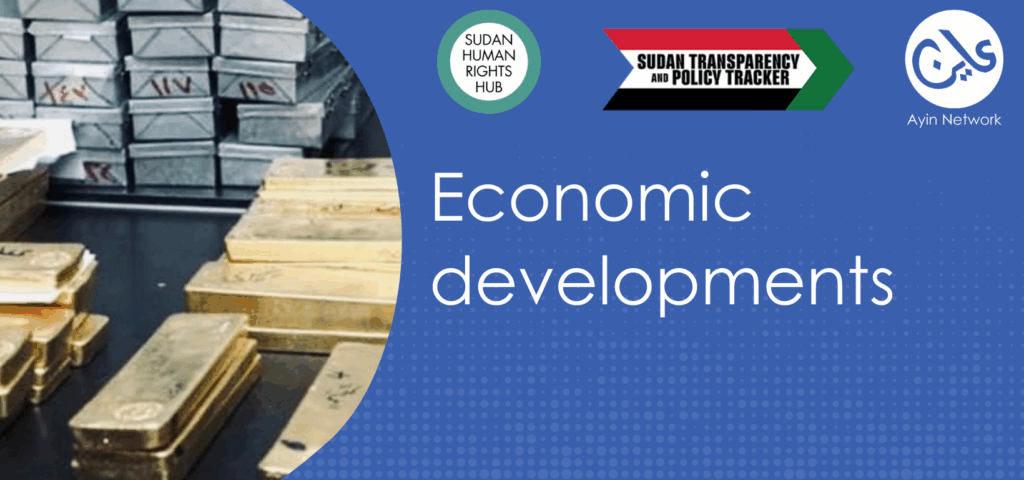
6. Economic developments
The potential economic implications of breaking ties with the UAE
The Sudanese authorities’ decision to sever diplomatic relations with the UAE and formally declare it a “hostile state” is risky because the de facto authorities still maintain strong economic and business ties with the UAE.
Despite rising tensions due to the UAE’s military support and diplomatic backing for the RSF, the UAE continued to be the primary destination for Sudan’s officially exported gold—worth $1.52 billion annually and providing Port Sudan with a critical source of foreign revenue. Smuggling routes for artisanal gold from both SAF-controlled and RSF-held territories converge on the UAE, highlighting the country’s central role in Sudan’s gold economy.
In addition, Sudanese authorities rely on the Abu Dhabi branch of the state-owned El Neilein Bank for processing international financial transactions. Moreover, Emirati and Gulf investors hold controlling stakes in the Bank of Khartoum, Sudan’s oldest and largest commercial bank. Its digital transfer platform, Bankak, dominates the domestic market, serving millions of Sudanese, including those sending remittances and support to war-affected relatives. On May 6, the Bank of Khartoum issued a statement assuring clients that its digital operations would remain unaffected by the diplomatic fallout.
Nevertheless, if the decision to sever ties is fully enforced, it could undermine some of these economic links. It could also expose Sudanese businesses operating in or through the UAE—including regional offices and subsidiaries of the SAF’s Defence Industries System—to the risk of prosecution by Sudanese authorities. Article 52 of Sudan’s Penal Code, titled Dealing with a Hostile State, stipulates: “Anyone who, without permission, works in the service of any state that Sudan declares to be hostile, or engages in any commercial or other transactions with it or its agents, shall be punished with imprisonment for a term not exceeding ten years, or with a fine, or with both penalties.”



